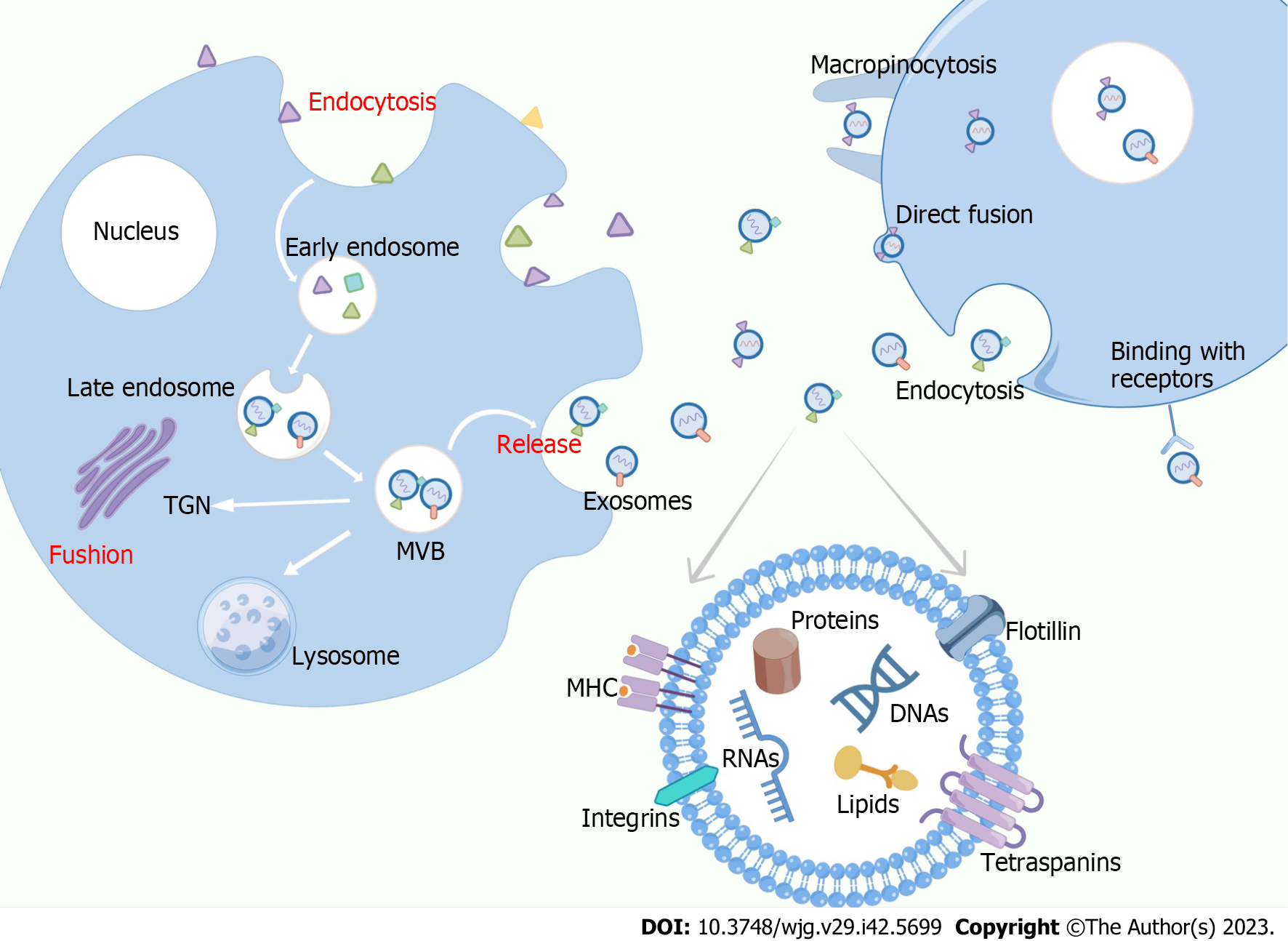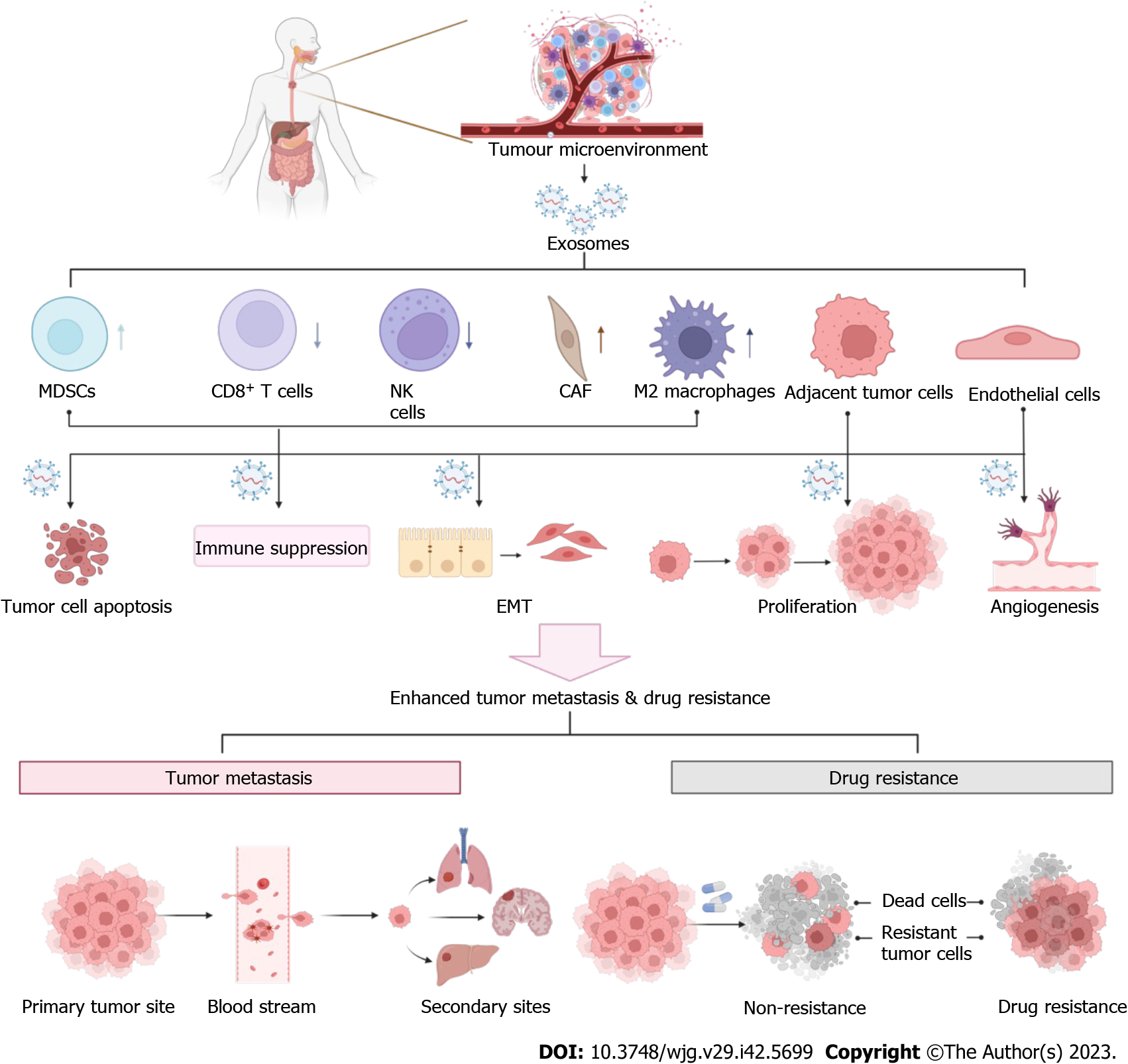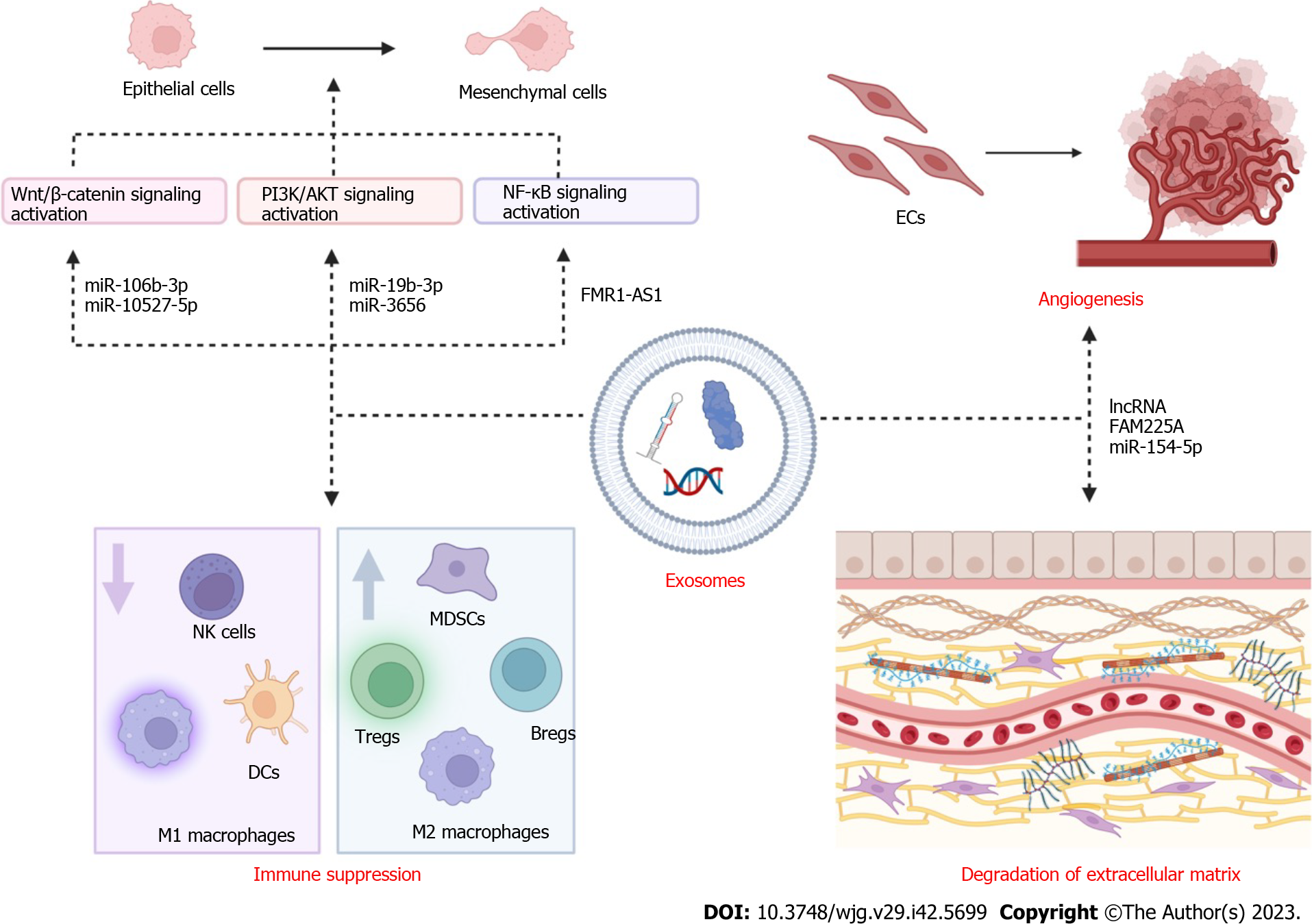Copyright
©The Author(s) 2023.
World J Gastroenterol. Nov 14, 2023; 29(42): 5699-5715
Published online Nov 14, 2023. doi: 10.3748/wjg.v29.i42.5699
Published online Nov 14, 2023. doi: 10.3748/wjg.v29.i42.5699
Figure 1 Exosome biogenesis, uptake, and contents.
Briefly, the biogenesis of exosomes involves the inward invagination of the cytoplasmic membrane, the transition from early endosomes to late endosomes, the maturation of late endosomes into multivesicular bodies, the generation of ILVs, and the release of ILVs into the extracellular environment to become exosomes. Exosomes are structured with proteins, lipids, and nucleic acids. Recipient cells mainly uptake exosomes through the manner of endocytosis, direct fusion, macropinocytosis and binding with receptors. MHC: Major histocompatibility complex; TGN: Trans-Golgi network; MVB: Multivesicular body.
Figure 2 Cells promote metastasis and drug resistance of esophageal cancer in the tumor microenvironment.
Esophageal cancer (EC)-cell derived exosomes can promote metastasis and drug resistance of EC by influencing cells in the tumor microenvironment (TME). Exosomes are involved in altering the number or function of immune cells in the TME, resulting in more EC cells evading the immune system. And, EC-cell derived exosomes may promote the proliferation of endothelial cells to form neovascularization and the proliferation of adjacent tumor cells. Moreover, EC-cell derived exosomes could launch the migration of EC cells from the primary tumor site to the secondary site. Additionally, originally sensitive EC cells could appear therapeutic resistance under the influence of exosomes secreted by neighboring drug-resistant cells. MDSCs: Myeloid-derived suppressor cells; CAF: Cancer-associated fibroblasts; EMT: Epithelial-mesenchymal transition.
Figure 3 The role of exosomes in esophageal cancer metastasis.
Exosomes are associated with esophageal cancer (EC) metastasis by transferring their contents. The activation of several signaling pathways, including Wnt/β-catenin, PI3K/AKT and NF-κB signaling pathways, is closely to the exosome-mediated tumor microenvironment in EC. Exosomes can mediate immune suppression by downregulating antitumor cells (including NK cells, dendritic cells and M1 macrophages) and upregulating protumor cells (including myeloid-derived suppressor cells, Tregs, Bregs and M2 macrophages). Additionally, in primary EC sites, degradation of extracellular matrix and angiogenesis are also promoted by exosomes. MDSCs: Myeloid-derived suppressor cells; ECs: Esophageal cancers; DCs: Dendritic cells.
- Citation: Ning XY, Ma JH, He W, Ma JT. Role of exosomes in metastasis and therapeutic resistance in esophageal cancer. World J Gastroenterol 2023; 29(42): 5699-5715
- URL: https://www.wjgnet.com/1007-9327/full/v29/i42/5699.htm
- DOI: https://dx.doi.org/10.3748/wjg.v29.i42.5699











